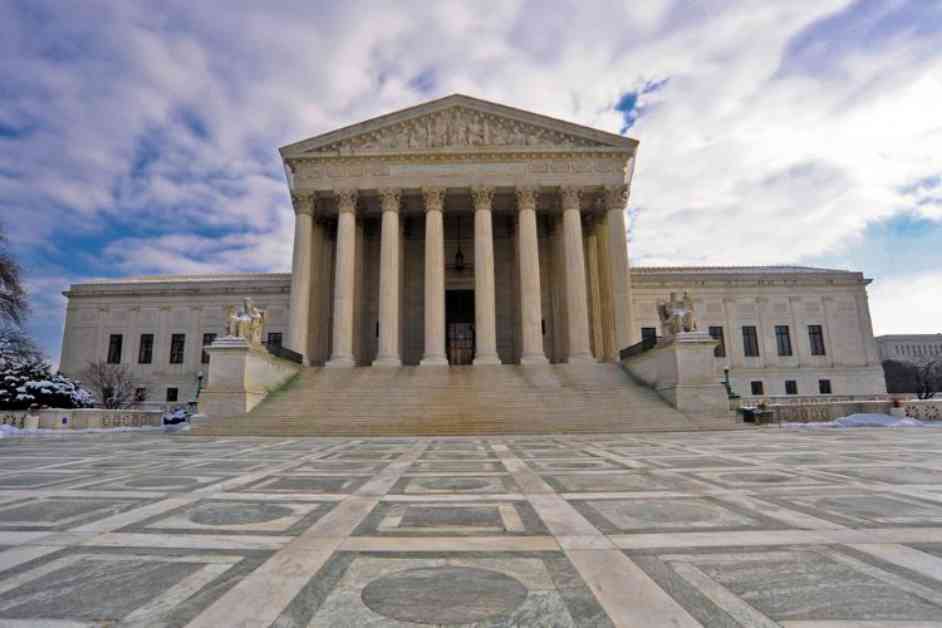Supreme Court Justices’ Summer Break Disrupted by Emergency Docket Cases
As the summer break for the U.S. Supreme Court justices commenced, Chief Justice John Roberts and his colleagues were looking forward to some much-needed relaxation after a hectic term. However, their plans for vacations, teaching engagements, and other activities were soon interrupted by a flood of emergency cases that demanded their attention.
Chief Justice John Roberts took on a teaching gig on Supreme Court history in Galway, Ireland, as part of a program hosted by the University of Galway. Meanwhile, Justice Neil Gorsuch traveled to Porto, Portugal, to teach a seminar on the separation of powers for George Mason University’s Antonin Scalia Law School. Upon his return, Gorsuch was busy promoting his latest book, “Over Ruled: The Human Toll of Too Much Law,” co-authored with his former law clerk Janie Nitze, which was released on August 6.
Justice Ketanji Brown Jackson was also occupied with finalizing her own book, a memoir titled “Lovely One,” set to be published on September 3. Other justices kept their summer plans private, possibly due to heightened security concerns in recent years.
During the annual judicial conference of the 9th U.S. Circuit Court of Appeals in Sacramento, Justice Elena Kagan expressed her frustration with the encroachment of emergency actions on the justices’ summer break. Kagan highlighted the shift in recent years where emergency petitions have disrupted what was once a peaceful respite for the court.
Emergency applications have become a common occurrence during the summer, covering a range of issues such as environmental regulations, voting laws, and education policies. These urgent matters require swift attention from the justices, even during their supposed break from official duties.
One significant case that reached the court’s emergency docket was West Virginia v. Environmental Protection Agency, where multiple states and industry groups sought to block an EPA regulation limiting carbon emissions from power plants. Another notable case involved the Republican National Committee’s request to stay a lower court injunction against an Arizona law requiring proof of citizenship for voter registration and voting for president.
The Biden administration also faced legal challenges in cases such as Biden v. Missouri and Alaska v. Department of Education, which centered on the administration’s student loan relief plan. Additionally, Department of Education v. Louisiana and Cardona v. Tennessee addressed the interpretation of Title IX to include sexual orientation and gender identity in federally funded schools, sparking controversy and legal battles across multiple states.
Despite the court’s procedures for handling emergency applications, the influx of urgent matters has strained the justices’ summer break. The court’s handling of emergency cases has drawn criticism from legal experts, with concerns raised about the impact on the court’s workflow and decision-making process.
Legal scholar Steve Vladeck highlighted the challenges posed by the court’s growing caseload during the summer break, noting that some emergency applications may not warrant immediate attention. Vladeck criticized the court’s handling of emergency cases, particularly the recent denial of the Biden administration’s motions in the Title IX dispute, which he deemed as a “huge mess.”
While the court has mechanisms in place to address emergency matters, the increased volume of urgent cases during the summer presents logistical challenges for the justices. The court’s ability to move quickly and make informed decisions during the summer break has come under scrutiny, prompting calls for a reevaluation of the emergency docket process.
In response to criticisms of the court’s shadow docket, some justices have defended the emergency actions as necessary to address pressing issues. However, there have been instances where emergency cases have been transferred to the court’s regular merits docket for further consideration, indicating a potential shift in approach by the justices.
One such example was the Texas case involving Senate Bill 8, a controversial abortion law that sparked nationwide debate. The court initially allowed the law to take effect through an emergency action but later scheduled oral arguments and issued an opinion restricting legal challenges to the law.
Despite the challenges posed by emergency cases during the summer break, Justice Kagan emphasized the importance of careful consideration and due process in handling urgent petitions. Reflecting on the court’s decision-making in emergency matters, Kagan acknowledged the need for a balanced approach to ensure that cases are thoroughly reviewed before action is taken.
As the Supreme Court justices navigate a busy summer docket filled with emergency applications, the pressure to balance their official duties with much-needed rest and relaxation remains a constant challenge. The court’s handling of urgent cases during the summer break sheds light on the complexities of judicial decision-making and the delicate balance between upholding justice and preserving the sanctity of the court’s traditional recess period.















